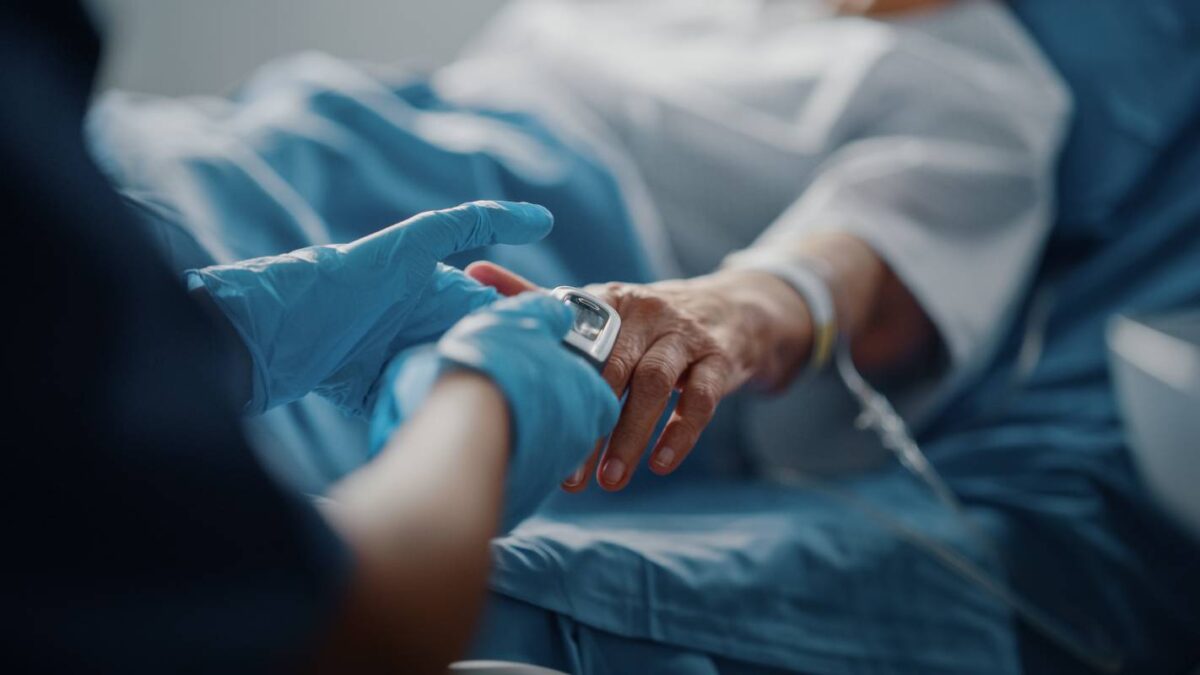Biomarkers of Perioperative Vulnerability

The risk of complications remains a major consideration for patients planning to undergo surgery. To be able to prevent or even just predict complications at an early stage would have enormous implications for reducing procedure-related morbidity and mortality. For this reason, physicians and surgeons alike have long been invested in identifying biomarkers of perioperative vulnerability.
When it comes to retrieving biomarkers, serum tests are the gold standard, as they are cost-effective, time-efficient, and easily completed. A number of serum tests can be performed to predict and elucidate an individual’s response to surgical stress. As can be expected, different biomarkers are of varying relevance when it comes to different population demographics and types of surgical intervention. The bulk of research on the prediction and monitoring of perioperative vulnerability has been concentrated on two patient groups: the elderly, and patients with cardiovascular complications.
Postoperative delirium, for example, are one of the most common ailments experienced by elderly patients following surgery. It is predicted that 40 percent of cases of postoperative delirium are preventable [1]; however, the complication, once manifested, poses an enormous healthcare and financial burden. Physicians Farrah Ayob et al. demonstrated that preoperative C-reactive protein levels were significantly associated with vulnerability to postoperative delirium in elderly patients [2]. Another study found that levels of the cytokine CCL2 present during the surgery were highly predictive of postoperative delirium [3]. Taken in accumulation, these findings suggest that utilizing perioperative serum testing to inform treatment plans could potentially prevent this life-altering complication in elderly patients. Moreover, given the preventability of post-operative delusions (for example, with regular exercise and hydration) [1], patients with prior knowledge of perioperative vulnerability might be able to receive the operation and avoid the complication using routine interventions.
For patients with peripheral artery disease, occurrence of a cardiovascular event within 30 days of surgery was predictable using biomarkers related to inflammation and coronary plaque instabilities preoperatively [4]. The authors of the 2019 study reported that preoperative levels of cystatin C, N-terminal pro-B-type natriuretic peptide, troponin I, high-sensitivity troponin T, matrix metalloproteinase 3, and osteoprotegerin were solid predictors of postoperative complications [4]. Many of these biomarkers are equally usefully for monitoring and detecting vulnerability within the OR: the European Society of Cardiology identified cardiac troponins T, cardiac troponins I, C-reactive protein, N-terminal pro-brain natriuretic peptide, and brain natriuretic peptide all as being useful biomarkers for perioperative cardiac vulnerability [5].
One potential risk during cardiac surgery is neurological dysfunction. Several perioperative neurological biomarkers have been associated with increased vulnerability during cardiac surgery. These biomarkers include S100B (a protein whose presence indicates blood-brain barrier dysfunction), neuronal-specific enolase, metalloproteinases, and UCH-L1 [6]. However, as the authors of the cited review note, more research is necessary to validate these associations for clinical use.
While these studies demonstrate that testing for select biomarkers can predict perioperative vulnerability, the best predictions result from combining a variety of approaches. Ideally, a physician might be able to supplement such analyses with a thorough patient history (including known conditions/vulnerabilities), imaging, and – in certain cases – cognitive testing. All in all, biomarkers of perioperative vulnerability are one of many key factors when it comes to assessing treatment options.
References
1 Ask the expert: Prevention and treatment of post-operative delirium. Health in Aging. (2014). Retrieved from https://www.healthinaging.org/tools-and-tips/ask-expert-prevention-and-treatment-post-operative-delirium.
2 Ayob, F., Lam, E., Ho, G., Chung, F., El-Beheiry, H., & Wong, J. (2019). Pre-operative biomarkers and imaging tests as predictors of post-operative delirium in non-cardiac surgical patients: a systematic review. BMC anesthesiology, 19(1), 25. https://doi.org/10.1186/s12871-019-0693-y
3 Menzenbach, J., Frede, S., Petras, J., Guttenthaler, V., Kirfel, A., Neumann, C., Mayr, A., Wittmann, M., Coburn, M., Klaschik, S., & Hilbert, T. (2021). Perioperative vascular biomarker profiling in elective surgery patients developing postoperative delirium: a prospective cohort study. Biomedicines, 9(5), 553. https://doi.org/10.3390/biomedicines9050553
4 Chan, W., Kingwell, B. A., Schneider, H. G., Cox, G., Natoli, A., Starr, J., Croft, K. D., Dart, A. M., & Duffy, S. J. (2019). Preoperative biomarker evaluation for the prediction of cardiovascular events after major vascular surgery. Journal of vascular surgery, 70(5), 1564–1575. https://doi.org/10.1016/j.jvs.2019.02.041
5 Janković, R. J., Marković, D. Z., Sokolović, D. T., Zdravković, I., & Sorbello, M. (2017). Clinical indices and biomarkers for perioperative cardiac risk stratification: an update. Minerva anestesiologica, 83(4), 392–401. https://doi.org/10.23736/S0375-9393.16.11545-7
6 Cata, J. P., Abdelmalak, B., & Farag, E. (2011). Neurological biomarkers in the perioperative period. British journal of anaesthesia, 107(6), 844–858. https://doi.org/10.1093/bja/aer338
